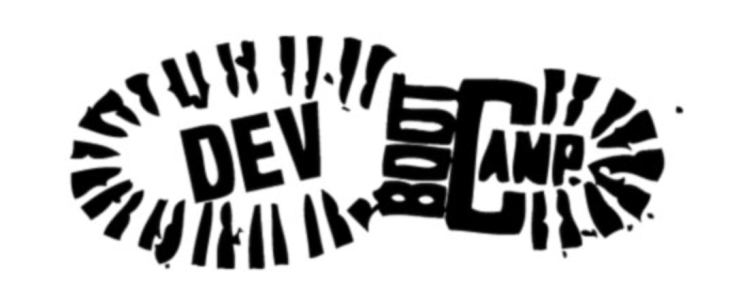We heard this week that Dev Bootcamp, the first of the coding bootcamps, will close its doors in December, unable to “reach a sustainable business model,” according to the company. But I think there’s more hiding behind the headlines (isn’t there always?).
First, some background. Dev Bootcamp birthed the coding bootcamp industry in 2012. Coding bootcamps are weeks- or months-long programs focused on teaching students enough skills on a few coding tools for them to be able to find a job. The bootcamps rose in popularity when the U.S. economy grew hungry for workers with tech skills. With the industry suffering more than half a million unfilled positions, companies and would-be coders flocked to these facilities. For students, the most interesting part of the deal was that for an average cost of $11,000, they could expect to see an average salary increase of 64 percent.
And so the bootcamp industry exploded, growing from 2,178 students in 2013 to 18,000 in 2016.
But there was a catch — there’s always a catch.
June 5th: The AI Audit in NYC
Join us next week in NYC to engage with top executive leaders, delving into strategies for auditing AI models to ensure fairness, optimal performance, and ethical compliance across diverse organizations. Secure your attendance for this exclusive invite-only event.
Skills and opportunities needed
Bootcamps are great at showing non-developers what a career in coding can be like, and at training current developers in the latest tools. But there are limits to what bootcamps can do.
The dirty secret is that you can’t become a software engineer in weeks or even a few months, and finding employment is hard. The labor pool is drowning with too much junior talent, especially from so-called blue collar coders, who receive training on one or two specific tools. The idea of a laid-off steelworker or coal miner learning to program is wonderful — until they realize how few job opportunities exist in, say, Eastern Kentucky.
It’s time that any discussion of closing the skills gap becomes intertwined with closing the opportunities gap.
Meanwhile, the surplus of entry-level coders creates another problem. Companies already short on senior engineers would need even more of them to support and nurture these junior talents. Simply put, training more coders with minimal skills fails both the companies with job openings and the people seeking to fill them.
To be fair, coding bootcamps also graduate more experienced students, who, once hired, become operational quickly and need little coaching. But these are developers who attended a bootcamp for training on specific new tools. In these cases, bootcamps mostly act as retraining resources or as an accelerator. HackReactor, known to be among the best coding bootcamps, requires students to master a significant amount of tech knowledge before accepting them into its program. They may serve an important role in rebounding rust belt communities, but only if job training is coupled with job creation.
The planned shuttering of Dev Bootcamp and realities of the job market suggest we’ve passed peak bootcamp. The market will consolidate: Several bootcamps have already shut down, and others have been acquired and integrated into larger ones. This is not uncommon for any newly created industry and, in hindsight, should have been expected.
The Fourth Industrial Revolution
Bootcamps will not disappear. Some will continue to train the next generation of blue collar workers who will take on the growing numbers of jobs that require a little tech skill. Some new ones may be created in America’s struggling heartland cities. And meanwhile the most prestigious bootcamps will continue to accelerate software engineer training. But this isn’t solving the lack of qualified talent that the tech industry is suffering from.
And college? These cathedrals of learning have been, for centuries, the best place to go in hopes of accessing a job, but their relevance too might be fading. According to Goldman Sachs, a lot of colleges are just not financially worth it as the training does not bring enough financial gain to match the price tag. Although scholars say that colleges are not about just getting students a job, bootcamps are clearly targeted toward this goal. And those scholars might want to talk to their students — 91 percent of people who go to college do so to land a good job after graduation.
Finding the proper role for coding bootcamps requires them to focus on teaching skills needed by local employers. LinkedIn CEO Jeff Weiner believes this, and he has said that our education needs to focus more on skill training. But only focusing on skills is not enough. Bootcamp graduates have to find a company that is looking for talent with training on the specific tool they learned, and that will stick with it. Obviously that’s a hard condition to match.
On top of skills training, students need to develop their critical thinking, problem-solving skills, and most importantly their capacity to retrain and retool. Throughout their careers they’ll need to learn new programming languages and master new tools to keep up. The World Economic Forum speaks about a Fourth Industrial Revolution, powered by software and AI, that is drastically accelerating the rate of change in our job market. The keys to thrive in this world are adaptation and creativity, skills that bootcamps and college are often not training students on.
Liberté égalité fraternité
New-era colleges use a project-based approach, where teachers are not feeding students knowledge but rather coaching them to achieve their goals, to develop the type of coders sought by the tech industry. Mimicking a company environment, students work in groups on projects, learning whatever it takes to accomplish their goal, which leads them to develop their creativity and collaboration skills.
It is time to storm the Bastille again (forgive the expression, I’m French and tomorrow is July 14!) and change education as we know it. Bootcamps took a baby step, but there is so much more we can do.

